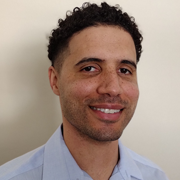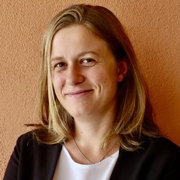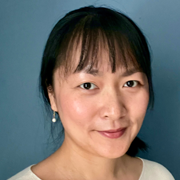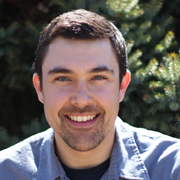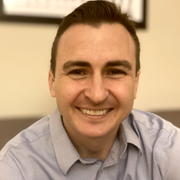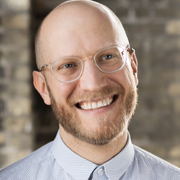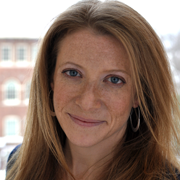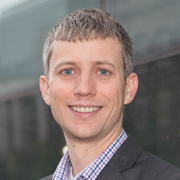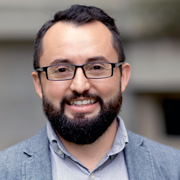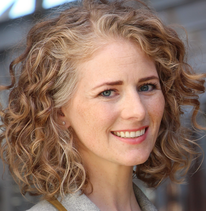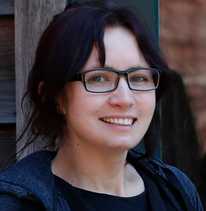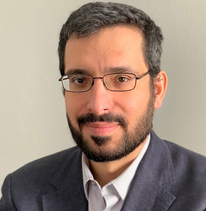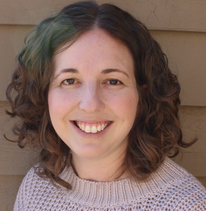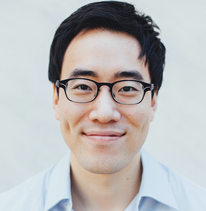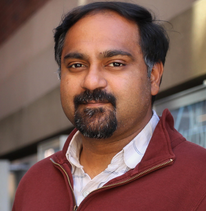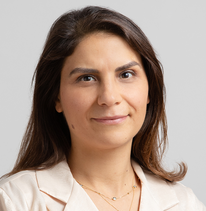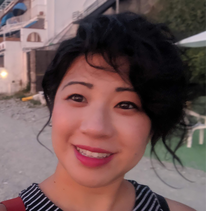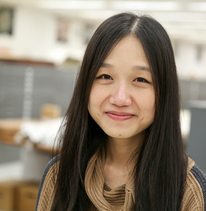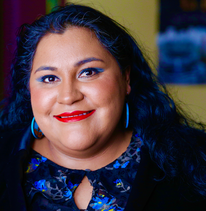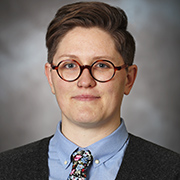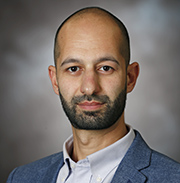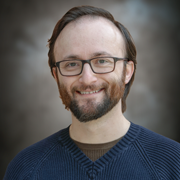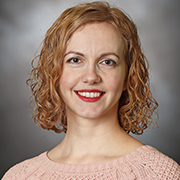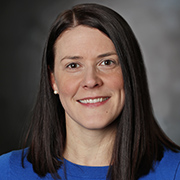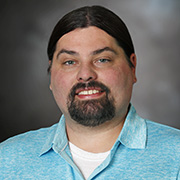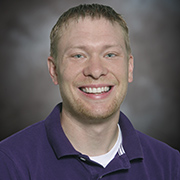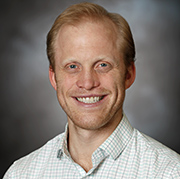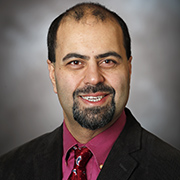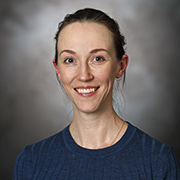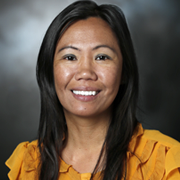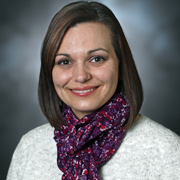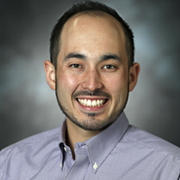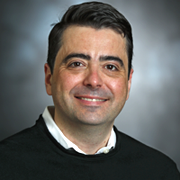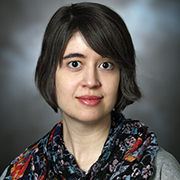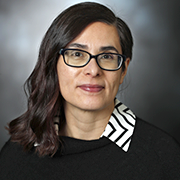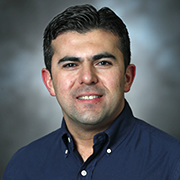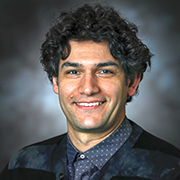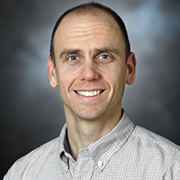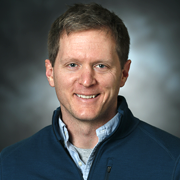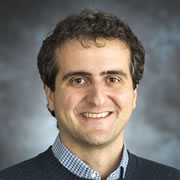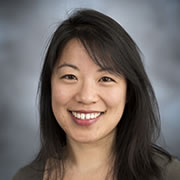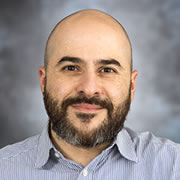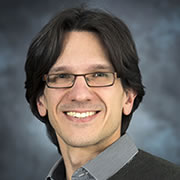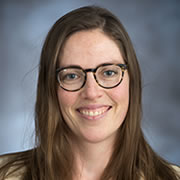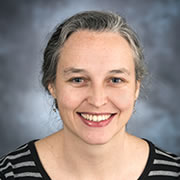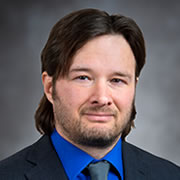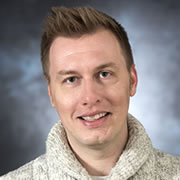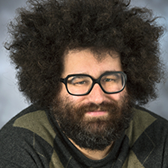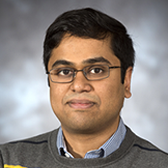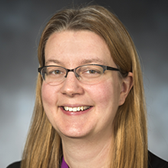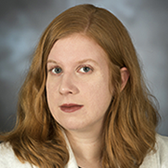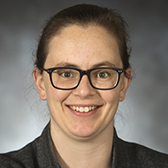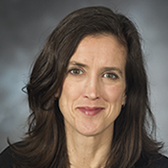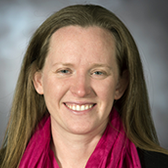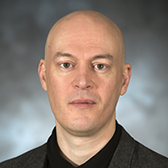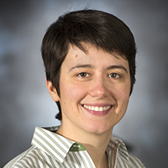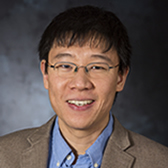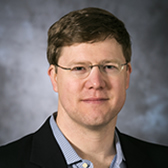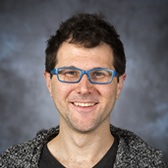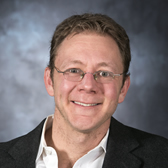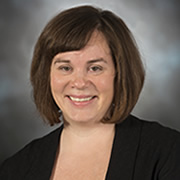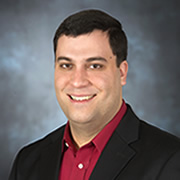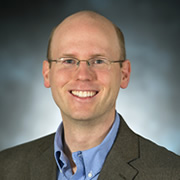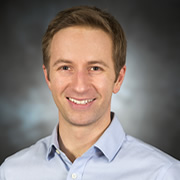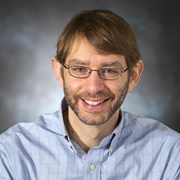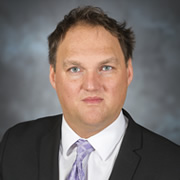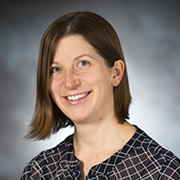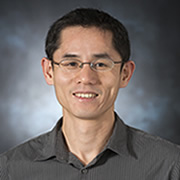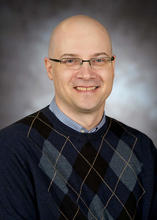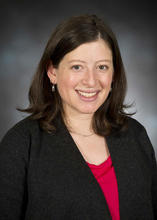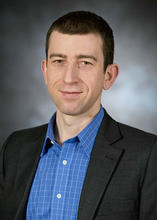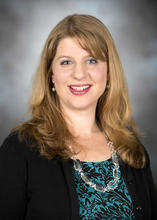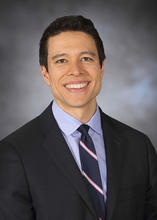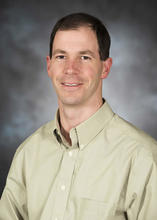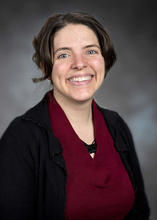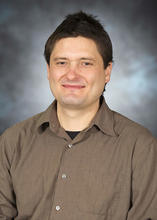The goal of the McKnight Land-Grant Professorship Program is to advance the careers of assistant professors at a crucial point in their professional lives. The designation of “McKnight Land-Grant Professor” is held by recipients for a two-year period. Nomination instructions for 2023-25 awards are available here.
Congratulations to the 2024 Award Recipients
Shir Alon
Asian and Middle Eastern Studies
College of Liberal Arts
Future Imperfect: Fictions of Security in the Neoliberal Middle East
Neoliberal political economies have radically changed the ways Middle Eastern governments think of risk, security, and the management of the future and of their populations. In the past 30 years, artists, writers, and filmmakers have responded to the proliferation of technologies of surveillance, preemption, risk management, and financialization by composing competing fictions of risk and safety in their works. This project adopts a regional lens to examine how cultural production responds to neoliberal logics of governance.
Madelaine C. Cahuas
Geography, Environment & Society
College of Liberal Arts
Sustaining Black, Indigenous and Latinx Urban Spaces of Social Justice Activism
Madelaine Cahuas’s research examines how Black, Indigenous and Latinx communities sustain spaces of social justice activism in gentrifying northern cities. Bridging theories and methodologies across Latinx Studies and Geography, she is innovating the field of Latinx Geographies and deepening understandings of how relationships of care and solidarity are forged in place across social differences. This research carries significant implications for community organizing and equitable policymaking in and beyond the Twin Cities.
Michelle A. Calabrese
Chemical Engineering & Materials Science
College of Science & Engineering
Engineering complex fluids for healthcare, sustainability and advanced materials
The Calabrese lab addresses grand societal challenges by engineering new complex fluids and soft materials: structured fluids or soft solids like those found in consumer products, vaccines, and biomedical materials. To create technologies for applications including drug delivery and sustainability, the group synthesizes polymers and nanoparticles, and then precisely characterizes their structure and flow behavior. Understanding the fundamental relationship between material structure, flow properties and performance then enables development of new materials with finely-controlled properties.
Ryan J. Caverly
Aerospace Engineering & Mechanics
College of Science & Engineering
Solar Sailing: Harnessing the Sun for Space Propulsion
Current spacecraft lifetimes are limited by their need to carry their own fuel. Ryan Caverly is developing robotic solar sail technology that uses photons from the Sun to propel spacecraft without fuel. This will enable unique and impactful long-duration space missions, such as an early warning system for solar flares that disrupt critical communication and power grids on Earth, as well as a solar shade system that cools the Earth and slows down climate change.
Michelle Chu
Mathematics
College of Science & Engineering
Groups in Geometry and Topology
Mathematical groups are algebraic structures which encode the symmetries of geometric spaces and physical objects. The group of symmetries of an object is the collection of all transformations that leave the object invariant, together with the operation on the collection coming from the composition of these transformations. In her work, Michelle Chu studies the relationship between the algebraic properties of groups and geometric properties of spaces for which groups appear as symmetries.
Michael Coughlin
Physics & Astronomy
College of Science & Engineering
Unlocking the secrets of the multi-messenger universe
Astrophysical explosions from merging neutron stars and black holes are revolutionizing measurements of the expansion rate of the Universe and properties of matter at the highest densities in the Cosmos. Michael Coughlin is leading innovative efforts in both software and hardware development which will maximize the scientific return on these explosive events. His efforts are placing the University of Minnesota in a leadership position in the flourishing, nascent field of multi-messenger astronomy.
Serra M. Hakyemez
Anthropology
College of Liberal Arts
Compassion or Collaboration? Turkish Humanitarianism in Somalia
Liberal humanitarianism driven by compassion shapes global politics as wars, climate change, and economic crisis keeps decimating human life. The reconfiguration of humanitarianism by non-liberal donor countries remains to be an understudied aspect of humanitarianism literature. This project studies Turkish humanitarianism in Somalia by conducting community-engaged research among Somali diaspora in Minneapolis and ethnographic research in a Turkish hospital in Mogadishu. It aims to explore the limitations of compassion-based politics and produce a collaboration-based critique.
Carlye Lauff
Product Design
College of Design
Balancing act: How design teams prioritize early-stage physical prototyping feedback
Prototyping is a fundamental part of new product development, and prototypes are essential for rationalizing design decisions and communicating design intent when developing a product. Early-stage physical prototypes vary in form, function, materials, and construction, and these various models are tested with stakeholders to evolve the design. This research aims to understand how physical prototype fidelity influences feedback from various stakeholders, and then how design teams balance and prioritize that information to make design decisions.
Courtney C. Roberts
Chemistry
College of Science & Engineering
Access to “Inaccessible” Heteroarynes to Benefit Materials, Medicinal, and Agricultural Chemistry
Chemists seek to improve the world around them by inventing and manipulating molecules to solve exciting challenges. Research in the Roberts group seeks to mix and match cores of pharmaceutical molecules in order to improve their efficacy and invent new drugs. This can be accomplished through organometallic catalysis which is the synergy between metals and organic molecules.
Heidi Roop
Soil, Water & Climate
College of Food, Agricultural & Natural Resources Sciences
Advancing the use of climate change science to increase the resilience of
communities and landscapes
Heidi Roop’s interdisciplinary research and Extension program advances the use and integration of climate change-related information in decision- making with a focus on enhancing equitable climate resilience. Her community-engaged scholarship contributes to critical advances in climate research with a focus on novel approaches in the field of climate services. Through her research, extension programs, and service, Roop seeks to reduce the negative impacts of climate change on communities and landscapes.
Josef Woldense
African American & African Studies
College of Liberal Arts
Taking a Glimpse Behind the Curtain: Probing the Inner Workings of Authoritarian Regimes
Rather than fade away from the world’s political landscape, authoritarian regimes have made a comeback in recent times. The problem is, we know little about their inner workings. Using network analytic tools, Josef Woldense’s research examines the contentious relationship between autocrats and their ruling elite, which is marked by the combustible mix of mutual dependence, treachery and political survival. In so doing, his research provides insights into the underlying dynamics that shape authoritarian politics.
Judy Q. Yang
Civil, Environmental & Geo- Engineering
College of Science & Engineering
Advance Fundamental Understanding of Multiscale Fluid-Particle-Biota Interactions to
Address Critical Environmental and Health Issues
A wide variety of global environmental and health issues involve physical and biological interactions among fluids, particles/surfaces, and biota, at both micro- and macro-scales. However, interdisciplinary studies that involve both micro- and macro-scales are currently lacking because it is challenging to integrate techniques from multiple disciplines at multiple scales. Judy Yang’s research aims to advance fundamental understanding of the multiscale interactions among fluids, particles/surfaces, and biota, through original multiscale experiments, combining microfluidic and flume technologies.
2023 Award Recipients
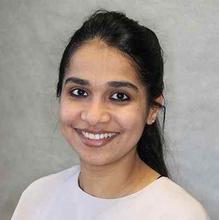
Ambika Bhagi-Damodaran
Chemistry
College of Science & Engineering
Molecular Engineering of Iron Enzymes for New Therapeutics and Sustainable Catalysis
From respiration to nitrogen fixation, iron enzymes enable some of the most important biological processes. Ambika Bhagi-Damodaran and her team are developing molecular approaches to modulate biological functions of iron enzymes towards addressing long-standing challenges in health and energy. From a therapeutic perspective, she is developing new strategies to shorten treatment time for tuberculosis and chemo-resistant cancer. From a catalysis perspective, she is finding eco-friendly alternatives to current methodologies of chemical synthesis in industries.
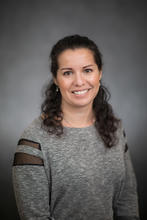
Christina Camell
Biochemistry, Molecular Biology and Biophysics
Medical School and College of Biological Sciences
Manipulating Inflammation, Senescence or Exhaustion in Immune Cells During Aging
Aging is linked to an increase in susceptibility to infections that is driven by a declining immune system. Immune cells from older individuals show higher levels of inflammation, exhaustion and senescence that are associated with its impaired response. The Camell Lab studies how immune cells interact and signal to other cell types within specific microenvironments of older organisms. Their research focuses on potential mechanisms of therapeutics that could improve the function of old immune cells.
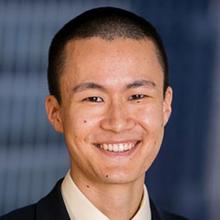
Jonathan H. Choi
Law School
Tax Law and Statutory Interpretation
Congress uses tax law to advance a wide variety of social goals, from wealth redistribution to housing policy to corporate investment. Jonathan Choi studies how principles of statutory interpretation can promote these goals while minimizing tax shelters and evasion. His work combines empirical analysis with normative doctrinal work to produce recommendations for agencies and courts.
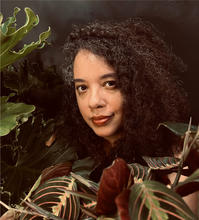
Megan Giddings
English
College of Liberal Arts
Supporting a Forthcoming Novel
Megan Giddings’s first novel, Lakewood, was a Best Book of 2020 at New York Magazine and NPR, and a nominee for two NAACP Image Awards. Her second novel, The Women Could Fly, garnered national and international attention with reviews in The Guardian, the New York Times, Time, and The Boston Globe, among others. A guest on Late Night with Seth Myers, Giddings is now working on her third novel, Meet Me at the Crossroads.
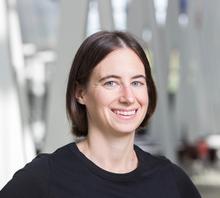
Rachel L. Hawe
Kinesiology
College of Education and Human Development
Optimizing Rehabilitation After Stroke: Leveraging Technology to Challenge the Status Quo
A stroke can happen at any time across the lifespan, often leaving individuals with lasting motor deficits. In order to improve rehabilitation, a better understanding of the underlying motor impairments is needed. Rachel Hawe’s research leverages technologies including robotics to precisely identify the specific impairments an individual has. This work will lead to personalized therapies and improve outcomes for the over 800,000 individuals who have a stroke in the United States every year.
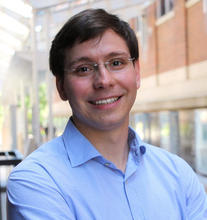
Ognjen Ilic
Mechanical Engineering
College of Science & Engineering
Forces of Light: Optomechanics of Nanostructured Materials
Ognjen Ilic studies the mechanics of how light interacts with materials to enable new technologies for contactless manipulation. He works at the intersection of optomechanics and wave physics to develop new nanostructured materials that can be actuated by light. Through their exotic optical and mechanical properties, these metamaterials are advancing existing applications of optical manipulation in science and engineering as well as enabling entirely new technologies ranging from fuel-free spacecraft to metamaterial robots and optomechanical sensors.
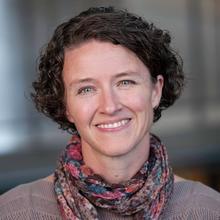
Carrie Oelberger
Humphrey School of Public Affairs
Radically Re-Envisioning Organizations to Address Grand Challenges
Our society needs drastic innovations on a global scale to combat entrenched social and environmental challenges. These innovations can only be effective if the organizations driving them are effective. Carrie Oelberger analyzes why and how such organizations often fail to realize their lofty intentions. She develops organizational theories and management practices that incorporate individual, organizational, and field-level considerations. Her unified individual-to-field framework overhauls conventional workforce practices and reforms decision-making processes, re-envisioning and strengthening organizations.
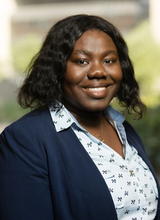
Sandra E. Safo
School of Public Health
Leveraging Multi-View Data to Better Understand Complex Disease Processes
How a particular disease develops and why people have different outcomes depend on the relationships among many factors, including molecular and environmental conditions in and outside the body. Dr. Safo’s group develops methods that rigorously combine information from multiple sources or views to investigate which factors are most important and how they interact. Her innovative methods can identify heterogeneous subgroups of the population, requiring different treatment approaches, and provide greater insight regarding disease etiology.
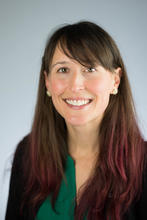
Tiffany Wolf
Veterinary Population Medicine
College of Veterinary Medicine
Bridging Local Knowledge, Community Values and Western Science in One Health
Over 60% of emerging infectious diseases in humans have originated from animals, the majority being from wildlife. Yet the health and well-being of humans is intricately connected to biodiversity, which is also in crises globally. As a wildlife epidemiologist, Tiffany Wolf works across disciplines to merge social science, ecology, and epidemiology to find solutions to these complex One Health challenges, particularly in situations where people derive food security and fundamental cultural benefits from wildlife.
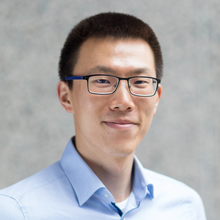
Qi Zhang
Chemical Engineering and Materials Science
College of Science & Engineering
Decision Discovery and Optimization for Sustainable Systems Engineering
Qi Zhang’s lab develops computational, data-driven methods for systems-level analysis and optimization that inform decision making in sustainable engineering applications. The proposed models and algorithms address various complex problems ranging from the effective operation of electrified chemical processes to the design of sustainable energy supply chains. Their research particularly focuses on multi-agent systems, which involve multiple self-interested decision makers, and systems with significant uncertainty, especially regarding the performance and cost of new clean technologies and weather-dependent events.
2022 Award Recipients
Adam Bledsoe
Geography, Environment, and Society
College of Liberal Arts
University of Minnesota Twin Cities
Legacies of the Black Twin Cities: A Political History of the Present-Day
This project contextualizes current Black activism in the Twin Cities by tracing the historical linkages between today’s Black political actors and institutions and the last century of political activity in Minneapolis and Saint Paul. Drawing on interviews and a variety of archives, Adam Bledsoe charts out how the experiences and outcomes of previous generations of Black activism lay the groundwork for subsequent generations of activists and the current political landscape of the Twin Cities.
Martina Cardone
Electrical and Computer Engineering
College of Science and Engineering
University of Minnesota Twin Cities
Privacy and Security in Modern Communication and Computing Systems
Martina Cardone develops technologies for privacy and security of Big Data. Her research focuses on secure data transmission over wireless networks, and privatization of sensitive data prior to sharing data with external analyzers. Her work leverages rigorous mathematical analysis to obtain provably optimal solutions that also offer suitable engineering guidelines for practical design and implementation over current and next-generation communication networks and computing frameworks, such as wireless cellular networks and recommender systems.
Xue Feng
Civil, Environmental, and Geo- Engineering
College of Science and Engineering
University of Minnesota Twin Cities
Water, Climate, and our Changing Ecosystems
Water controls how plants and microbes use carbon to grow. As climate change shifts the timing and amount of precipitation, the hydrological processes that make water accessible to plants will determine how ecosystems will respond under new environmental and societal pressures. Combining theoretical, computational, and field-based approaches. Dr. Feng investigates the interactions between water and plants in forests, wetlands, and cities, to better understand their responses and feedbacks to the climate.
Jacob Jungers
Agronomy and Plant Genetics
College of Food, Agricultural, and Natural Resource Sciences
University of Minnesota Twin Cities
Developing and Deploying New Crops to Improve Agricultural Sustainability
Summary: Agriculture is dominated by annual crops that leak nutrients and emit greenhouse gases. Dr. Jacob Jungers is developing the world’s first perennial grain crop, which has potential to drastically improve agricultural efficiency. His research focuses on how to grow this new crop alongside others to minimize fertilizer and pesticide inputs. Outcomes of his research result in improving farmer profitability while minimizing environmental damages such as soil loss, water pollution, and greenhouse gas emissions.
Patrick Kelly
Physics and Astronomy
College of Science and Engineering
University of Minnesota Twin Cities
Probing the Universe’s Dark Matter and Energy and Uncovering the Mergers of Neutron Stars
Patrick Kelly both acquires observations and builds instruments to address the nature of dark matter, dark energy, and cosmic explosions. A preponderance of the universe’s matter and energy is dark -- it does not emit or interact with light – and Dr. Kelly uses supernova explosions and gravitational lensing of individual stars across the universe to probe its composition. Recent detections of ripples in spacetime also reveal merging neutron stars. He is constructing two powerful sets of telescopes to find and understand these cataclysmic events.
Jason Kerwin
Applied Economics
College of Food, Agricultural, and Natural Resource Sciences
University of Minnesota Twin Cities
Using Innovative Programs and Randomized Field Experiments to End Global Poverty
Despite incredible progress and economic growth over the past fifty years, many parts of the world are still persistently poor. These disparities create a moral imperative to raise living standards in the developing world and tackle the numerous other challenges facing poor countries. Dr. Kerwin answers that call by using randomized experiments and the tools of economics to discover and test solutions to the interlocking set of social and economic problems that keep people poor.
M. Bennett McNulty
Philosophy
College of Liberal Arts
University of Minnesota Twin Cities
Immanuel Kant on (Improper) Science
Immanuel Kant, paramount Enlightenment philosopher and keen theorist of science in the wake of the Scientific Revolution, (in)famously tweaked chemistry, psychology, anthropology, and biology as natural sciences, only “improperly so-called.” Bennett McNulty’s research project examines the reasoning behind Kant’s relegation of these disciplines to the rank of “improper” science to grasp better their state of development in the 18th century, Kant’s criticism of them, as well as our contemporary understanding of science.
Noelle Noyes
Veterinary Population Medicine
College of Veterinary Medicine
University of Minnesota Twin Cities
Microbes for Sustainable Intensification of Livestock Production
As the human population expands, so does its demand for protein. Livestock farmers must meet this demand, but their land and water are shrinking rapidly, meaning they must produce more with less. Dr. Noyes confronts this challenge through scientific discovery of the livestock microbiome. She seeks to understand how this invisible universe can be optimized to grow healthier, more efficient animals to feed the planet sustainably, sufficiently and safely.
David L. Poerschke
Chemical Engineering and Materials Science
College of Science and Engineering
University of Minnesota Twin Cities
Accelerated Design of New Materials to Survive Extreme Environments
Meeting society’s energy and environmental challenges requires resilient new materials that possess the right combination of mechanical and functional properties, and the capability to survive high temperatures and stresses without melting, fracturing, or deteriorating. Dr. Poerschke’s group synthesizes new materials, measures their properties, and tests them in extreme environments. By coupling these experiments with analytical and computational models to understand why materials fail, we accelerate the discovery of durable new metal alloys, ceramics, and composites.
Xavier Revelo
Integrative Biology and Physiology
Medical School
University of Minnesota Twin Cities
Metabolic Disease Turns “Hero” Immune Cells into Disease-promoters
Inflammation is part of the immune response that protects us from infections. However, increasing evidence has revealed that inflammation is a promoter of metabolic disease. Dr. Revelo and his team study the role of the immune system and inflammation in the development of obesity, fatty liver disease, and heart failure. As obesity-related disease is a worldwide epidemic, the research led by Dr. Revelo can lead to advances in its prevention and treatment using immunotherapy.
2021 Award Recipients
Julianna Abel
Mechanical Engineering
College of Science and Engineering
University of Minnesota Twin Cities
From Filaments to Fabrics – Hierarchical Innovations in Multifunctional Textiles for Enhanced Human Health
Multifunctional yarns and fabrics are crucial to revolutionizing medical devices, rehabilitation equipment, and wearable technologies that provide life-saving and life-enhancing interventions. However, little is understood about the effect of material processing, yarn manufacturing, textile design, and system integration on multifunctional textile performance. Abel’s research aims to derive material and structural models, establish advanced manufacturing techniques, and develop innovative design processes to enable advancements in current applications while opening the door to applications not yet imagined.
Kate Adamala
Genetics, Cell Biology and Development
College of Biological Sciences and Medical School
University of MinnesotaTwin Cities
Engineering Synthetic Life
Kate Adamala works on building synthetic cells. Such organisms, engineered from non-living components, give us the ability to control every element of a cell and to study behaviors and properties of life with unprecedented precision. Synthetic cells are used for both basic research and practical applications, to study the origins and evolution of life, to make drugs and novel biomaterials, to understand properties of normal cells and to study mechanisms of disease.
Turan Birol
Chemical Engineering and Materials Science
College of Science and Engineering
University of Minnesota Twin Cities
Materials by Computational Design
Increasing computer power makes it possible to solve the century old equations of quantum mechanics to develop new insight about real chemical compounds. However, discovering novel materials with superior performance requires a systematic approach that goes beyond reproducing the observed materials properties. Birol's research utilizes ideas from solid state physics, chemistry, and materials science to develop design strategies for computationally discovering new materials.
Sarah Heilbronner
Neuroscience
Medical School
University of Minnesota Twin Cities
Building a Wiring Diagram of the Brain
Cells in the brain connect and communicate with each other in complex and fascinating patterns. Sarah Heilbronner’s research aims to uncover these patterns, especially for parts of the brain that are demonstrably different in psychiatric disorders. Her research bridges nonhuman animal models and humans, allowing us to make inferences about neural mechanisms in humans and more effectively model brain disorders in animals.
Peter K. Kang
Earth and Environmental Sciences
College of Science and Engineering
University of Minnesota Twin Cities
Advancing Groundwater Science: from Understanding Life in the Subsurface to Securing Sustainable Water Resources
Groundwater systems store about 99% of global unfrozen freshwater, thus playing a critical role in sustaining our daily lives and global ecosystems. Most groundwater systems are composed of fractured rocks, and fractures provide major pathways for groundwater flows. Peter Kang visualizes fracture flows using novel imaging techniques and develops computer models that predict fracture flows and contaminant transport. Kang’s research addresses both fundamental and practical problems, such as severe water problems in the world, including Minnesota.
Suhasa B. Kodandaramaiah
Mechanical Engineering
College of Science and Engineering
University of Minnesota Twin Cities
Bionic Skulls for Cortex Wide Neural Activity Mapping
The cortex, the outer surface of the brain, is critically important for performing learned and adaptive behaviors. Very little is known about how multiple cortical regions work together to mediate such behaviors. We are engineering transparent skulls with embedded miniaturized optical imaging systems to map the activity of one million or more neurons in the cortex of the mouse to better understand the neural computations underlying complex behaviors.
Zozan Pehlivan
History
College of Liberal Arts
University of Minnesota Twin Cities
Political Ecology of Forced Sedentarization: Herd Dependent Peoples, Climate Change, and the Encroaching State (1850-1950)
In order to understand the global climate crisis today we need to look at history as well as science. Historical research examining state responses to environmental change shows consequences for human populations. This comparative project explores the global interaction between climate change, destruction of herds, and forced settlement of Indigenous populations during the late nineteenth and early twentieth centuries. The goal is to analyze the politics of environmental change in the past and the present.
Jennifer Eun-Jung Row
French and Italian
College of Liberal Arts
University of Minnesota Twin Cities
The Body Perfect: Race and the Aesthetics of Ableism in the Early French and Francophone World
Ableism is the belief that able bodies and minds are more worthy than disabled ones. How was this belief formed? Jennifer Row draws upon interdisciplinary archives (dance manuals to fairy tales to floor plans) to examine the formation of ableism and racism in the early modern French court and French Atlantic slavery. How and why were a variety of embodiments and mental traits sorted into a hierarchy of disposable, expendable lives and lives that matter?
Ying Song
Geography, Environment and Society
College of Liberal Arts
University of Minnesota Twin Cities
Sustainable Mobility and Multimodal Accessibility in Urban Space
Contemporary society benefits from the faster and cheaper movements of people and goods. This expanded mobility, however, comes with increasingly dire environmental, social, and economic costs. Ying Song’s research integrates theories in geography and behavior science with emerging geospatial technologies. Her research leverages new geospatial data and computational methods to gain novel insights into the diversity and dynamics of mobility behaviors via various travel modes and offer solutions to promote green and healthy mobility.
Gabriela Spears-Rico
Chicano and Latino Studies
College of Liberal Arts
University of Minnesota Twin Cities
Mestizo Melancholia and the Legacy of Conquest in Michoacán
Mestiza/o Melancholia reframes how constructions of indigeneity and mestizaje are understood in Mexico. Melancholia manifests in mixed race anxieties that mestizos project onto indigenous people. Mestizos mourn the ‘decimation’ of indigeneity caused by the ‘change/progress’ happening to indigenous people and confusion with their own indigenous identities. Utilizing semi-structured interviews as method and performance studies as a lens, I analyze mestizo-indigenous interactions at prominent events to understand how power relations and cultural appropriations inform mestiza/o identity.
2020-2022 McKnight Land-Grant Professors
Erin L. Durban
Anthropology
College of Liberal Arts
University of Minnesota Twin Cities
Plastic Futures: Transnational Engagements with Waste, Recycling, and Toxicity in the Americas
Plastic – the quintessential modern material – has come to symbolize the destructive dimensions of human innovation. As an opening to social and environmental problems, plastic has inspired valuable research across the sciences, arts, and humanities. This interdisciplinary project based in Haiti examines how marginalized people’s mundane engagements with plastic complicate or challenge the ideas of scientists, analysts, and other environmental experts, offering a greater understanding of global environmental inequalities and creative solutions to contending with toxicity.
Joseph R. Farag
Asian & Middle Eastern Studies
College of Liberal Arts
University of Minnesota Twin Cities
Beyond the Land of Palestine
Bodies and life vests washing up on the Mediterranean’s northern shores have recently disrupted the idyllic image of the Mediterranean. However, it has long been an ambivalent space for the Palestinian people since the loss of their homeland in 1948. Joseph R. Farag's book project explores how a geographic reading of the sea in Palestinian literature and film can reshape our views of the Mediterranean and of Palestinian experiences of both place and exile.
Samuel C. Fletcher
Philosophy
College of Liberal Arts
University of Minnesota Twin Cities
The Structure of Scientific Possibility
A good scientific theory tells a story not just about the way the world is but about the ways the world could be. Scientists have produced many such theories, with variegated stories. How do they all fit together? How does the structure of their stories bear upon how we have gained, and do gain, evidence for them? Samuel C. Fletcher develops new concepts and mathematical methods for answering these questions, especially for modern physics.
Lindsay Glesener
School of Physics & Astronomy
College of Science and Engineering
University of Minnesota Twin Cities
Putting the High-Energy Sun in Focus
The Sun is the most powerful particle accelerator in the solar system, but the methods it uses to do this have puzzled scientists for decades. Lindsay Glesener’s research group uses the novel method of focusing X-ray telescopes to investigate energy release and particle acceleration in solar flares. This involves building new telescopes and flying them into space to unravel the high energy mysteries of the Sun.
Sarah M. Greising
School of Kinesiology
College of Education and Human Development
University of Minnesota Twin Cities
Leveraging Curiosity and Physiology to Optimize Skeletal Muscle Function After Injury
Traumatic orthopaedic injuries can leave patients with significant lifelong dysfunction. Some injuries, such as volumetric muscle loss, are particularly challenging and current treatment guidelines for skeletal muscle remain elusive. To understand these injuries, Sarah Greising’s team evaluates how the muscle environment is limiting to adaption during treatment (surgical, regenerative medicine, and/or rehabilitation). Her lab is committed to using the physiology to promote an endogenous environment supportive of treatments to improve long-term function for these patients.
Branden Moriarity
Pediatrics
Medical School
University of Minnesota Twin Cities
Novel Therapies for Cancer and Genetic Disorders using Genome Engineered Immune Cells
Recent technological advances afford the ability to change the DNA, or genetic code, of human cells with unprecedented efficiency and fidelity, termed ‘genome engineering’. In parallel, the use of immune cells to treat cancer and disease has demonstrated great therapeutic promise, an approach termed ‘cancer immunotherapy’. However, immunotherapy has demonstrated limited success against advanced cancers. By implementing genome engineering in immune cells, it is now possible to develop immunotherapies capable of curing advanced cancer cases.
Christopher Pexa
American Indian Studies
College of Liberal Arts
University of Minnesota Twin Cities
Sovereign Flows: Indigenous Future-Making Beyond Borders
Christopher Pexa draws on Native American and Indigenous studies approaches to examine how a diverse range of archival, legal, and literary texts by Indigenous authors challenge and reimagine liberal citizenship, property, and sovereignty, as well as the ongoing colonialisms of settler states. His current book project examines works from Indigenous authors across the world that assert movement—considered in linguistic and aesthetic terms, but also as physical border-crossings—as a key future-oriented means of performing tribal peoplehood and tribal sovereignty in our present moment.
Anthony Schroeder
Math, Science & Technology
University of Minnesota Crookston
Utilization of Developmental and Environmental Molecular Toxicology: Discovering Organismal Responses to the Changing Environment
The Schroeder lab provides broad research opportunities for undergraduates in two main research areas: 1) exploring the biology of freshwater sponges in Minnesota and 2) examining the molecular mechanisms underlying sexual development and the impacts of contaminants on development in reptiles. This research purposely involves many areas of biology such as molecular biology, genetics, and environmental stressors, to provide undergraduate students with the opportunity to pursue research in their specific biological field of interest.
Andrew D. Wickert
Earth & Environmental Sciences
College of Science and Engineering
University of Minnesota Twin Cities
Earth-Surface Response to Climate and Land-Use Change
Increasingly frequent large storm events produce floods and landslides. These widen rivers, modify flood hazards, and reshape landscapes across Minnesota and around the world. Andrew Wickert links field observations, open-source sensor development, and physical experiments to develop comprehensive theory and numerical models that predict how changes in both climate and land use impact landscape stability. Through this, he works to explain the geological origins of our present landscape and inform sustainable land management into the future.
Alik S. Widge
Psychiatry and Behavioral Sciences
Medical School
University of Minnesota Twin Cities
Engineering Brain Networks to Treat Mental Illness
Alik Widge is a psychiatrist, biomedical engineer, and neuroscientist. He develops treatments that change brain activity to reverse the symptoms of mental illnesses such as depression, addiction, obsessive-compulsive disorder, and post-traumatic stress disorder. He uses electrical stimulation to change how brain regions communicate with each other, directly targeting the causes of mental illness. His lab spans the translational spectrum from prototyping in animals, to pilot tests in neurosurgical volunteers, to clinical trials and biomarker studies.
Sylia Wilson
Institute of Child Development
College of Education and Human Development
University of Minnesota Twin Cities
Development and Familial Transmission of Mental Illness
Substance abuse and depression are common forms of mental illness that affect millions of people and families each year. Sylia Wilson uses twin, adoption, and family studies to understand the developmental processes that lead to mental illness and transmission through families. She integrates developmental, clinical, and neuroscience approaches to identify neurobiological and environmental risk for substance abuse and depression. By elucidating causal mechanisms, this research guides preventive-intervention efforts for children, adolescents, adults, and their families.
2019-2021 McKnight Land-Grant Professors
Emilyn Uy Alejandro
Integrative Biology & Physiology
Medical School
Fetal origins of health and disease: How the first nine months shape your whole life
Type 2 diabetes is the most common chronic disease, but the search for causes and preventative treatment has largely failed. To prevent diabetes, Emilyn Alejandro’s team combines integrative approaches to study the novel role of nutrient-sensor proteins in the placenta and pancreas, to ultimately predict individuals who are at risk for diabetes and improve clinical interventions for existing patients. The team is shedding new light on the fetal origins of pancreatic- β-cell dysfunction, obesity and diabetes.
Nicole E. Basta
Epidemiology & Community Health
School of Public Health
Protecting individuals and communities: Maximizing the impact of vaccines to prevent deadly infectious diseases
Vaccines are among the most successful prevention strategies. Yet, worldwide, hundreds of millions suffer and many die from vaccine-preventable diseases. Nicole Basta generates novel data under challenging conditions to maximize the effectiveness of vaccines and the impact of vaccination programs. She combines methods from epidemiology, immunology, and ecology to evaluate immune responses to vaccines and to increase public confidence in, and global access to, life-saving vaccines. Her research directly guides infectious disease prevention policies.
Gabriel Chan
Humphrey School of Public Affairs
Advancing innovation policy for climate change mitigation and energy transition
Innovation policy to unlock structural change in energy systems will be required to address global climate change. Gabriel Chan applies interdisciplinary methods to study energy and climate policies in diverse contexts, from Minnesota to the United Nations. His research seeks to understand the dynamics of energy innovation organizations, the potential and limitation of transnational institutions to address climate change, and the possibilities for incorporating equity and democratic norms into energy transitions.
Lorenzo Fabbri
French & Italian
College of Liberal Arts
The global rise of libertarian fascism and the transnational practices of resistance
Why do “good people”—perfectly sane and decent folks who find no pleasure in afflicting pain or living in hate or ignorance—collaborate with discrimination, white supremacy, voter suppression, anti-Semitism, and violence? Which cultural phantasies and media discourses are behind their choices? Lorenzo Fabbri proposes to answer these questions in a book analyzing the forms of media and the affective structures fueling current neo-fascist tendencies in Italy and United States.
Jessica Gordon-Roth
Philosophy
College of Liberal Arts
Expanding the canon and diversifying the field of philosophy
Philosophy remains alarmingly homogenous. There is a renewed effort to expand the philosophical canon and diversify the field, however there has been very little discussion of how we ought to proceed when it comes to these projects. In her original research, Jessica Gordon-Roth works to identify patterns in scholarship which may be hindering our efforts. The aim is to provide an innovative conceptual framework which can aid philosophy as it works to expand and diversify.
Juliana Hu Pegues
American Indian Studies
College of Liberal Arts
Settler feminism: American foundations and alternate relations
This book project examines the role of colonialism as an embedded and elemental feature of American feminism, particularly how romanticized notions of Indigenous women and societies are imagined and deployed, from the suffragists to reiterations in the second-wave feminism of the 1970s through to the present. In contrast to this history, Juliana Hu Pegues forwards an alternative genealogy of feminist solidarities, articulated in the scholarly, creative, and political alliances of Indigenous and women-of-color feminists.
Soheil Mohajer
Electrical & Computer Engineering
College of Science & Engineering
Challenges in distributed systems for big data analysis
Soheil Mohajer develops technologies for storage, transmission, and processing of massive amounts of data in a distributed fashion. The proposed solutions are formed by networking together a large number of small entities to exploit the ubiquity of small, inexpensive, but potentially not reliable storage and computation units. The scope of this research spans from mathematical analysis and understanding of the barriers and limits, to developing fast and reliable algorithms to benefit from distributed architectures.
Vlad S. Pribiag
Physics & Astronomy
College of Science & Engineering
Novel low-dimensional quantum materials and devices for information processing
The ongoing miniaturization of conventional semiconductor-based computers rapidly approaches fundamental limits dictated by the laws of quantum mechanics. To transcend these limitations and develop more powerful computers, it is paramount to consider new classes of materials, which fully embrace the richness of quantum mechanics. The Pribiag lab applies innovative nanofabrication and low-temperature measurement techniques to uncover the electronic properties of new low-dimensional material systems and to develop quantum devices that could enable future computing paradigms.
Michael J. Smanski
Biochemistry, Molecular Biology & Biophysics
College of Biological Sciences
Re-programming living systems for applications in medicine, agriculture, and the environment
The Smanski group works on diverse projects that share a common theme of leveraging technologies in DNA synthesis/assembly (i.e. writing and composing genetic information) to reprogram living systems. Recently, they have successfully engineered bacteria to produce a potent neuroprotective drug and engineered mammalian cells to produce therapeutic proteins. In parallel, they have invented and demonstrated a new approach for creating effective and safe bio-pesticides that will control populations of insect pests, disease vectors, and invasive species.
Scott Vrieze
Psychology
College of Liberal Arts
Nature and nurture in addiction
Addictive behaviors are major sources of preventable death caused by genetic factors and environmental circumstance. Dr. Vrieze studies such factors in order to identify causal mechanisms in the development of addiction, with the ultimate goal of designing interventions based on this causal understanding. His laboratory uses cutting edge genomic tools and rigorous experimental design to discover genes associated with addiction, and characterize the biological and social mechanisms by which addictive drugs act.
2018-2020 McKnight Land-Grant Professors
Mehmet Akçakaya
Electrical & Computer Engineering
College of Science & Engineering
Transforming healthcare and biomedical sciences with fast high-precision Magnetic Resonance Imaging
Magnetic Resonance Imaging (MRI) is a non-invasive and radiation-free medical imaging technology that has found immense utility in the diagnosis of numerous diseases and biomedical research, for instance in understanding the human brain. Despite its advantages, MRI still faces major challenges in acquisition duration, necessitating trade-offs in spatial and temporal resolutions. Mehmet’s research develops transformative new methods for fast high-precision MRI to enable the visualization of structures that cannot be characterized with current technology.
Elaine Auyoung
English
College of Liberal Arts
How stories fit the mind: The human scale of narrative design
Elaine Auyoung uses cognitive research on reading to uncover the relationship between narrative technique and literary experience. Her current book project explores and illuminates cognitive biases that have shaped longstanding narrative conventions. By demonstrating how the stories we tell ourselves can delimit our capacity to understand the world, this project seeks to cultivate broader critical awareness about the habits of mind that hinder us from comprehending and addressing global challenges.
Ran Blekhman
Genetics, Cell Biology & Development
College of Biological Sciences
Using genomics to understand how the microbiome impacts human health
The microbial communities that colonize the human body are involved in many human diseases. Since the same diseases are also affected by human genes, characterizing the interplay between the microbiome and human genetics is central to understanding human biology and disease. Ran Blekhman utilizes high-throughput genomic technologies and advanced analytical approaches to integrate human and microbiome genomic big data, with the goal of understanding how the microbiome affects disease and developing microbiome-based therapies.
Filippo Coletti
Aerospace Engineering & Mechanics
College of Science & Engineering
Transport of airborne particles inside our lungs and around us
Respiratory disease is the second leading cause of death worldwide, and is often initiated by the exposure to airborne pollutants. Understanding how microscopic particles travel in air and inside our airways is therefore of paramount importance. Filippo Coletti uses high-speed laser imaging to track suspended particles, and medical imaging to follow their path in 3D printed replicas of human lungs. This is shedding new light on how air quality impacts our health.
Katharine Gerbner
History
College of Liberal Arts
Constructing religion, defining crime: Slavery, power, and belief
Religious freedom is one of the founding principles of American democracy. But modern ideas about religion and freedom emerged within a colonial slave society. As my research shows, under the institution of slavery, some religious practices were deemed legitimate while others were criminalized. Recognizing the complex dynamic between race, belief, and danger shows that we must examine the history of slavery in order to understand the meaning of religion and the concept of religious freedom.
Esther Krook-Magnuson
Neuroscience
Medical School
Understanding and harnessing the strength of neuronal diversity through selective neuromodulation
The brain is composed of circuits, elegantly connected and displaying diversity in their elements. Dr. Krook-Magnuson’s research uses cutting-edge techniques to improve our understanding of neuronal connectivity and diversity in health and disease, and to then use this information to design intervention strategies for neurological disorders, including epilepsy.
G.-H. Crystal Ng
Earth Sciences
College of Science & Engineering
Integrated hydrological sciences to prepare society for local and global change
The interaction of freshwater systems with biogeochemical cycling, climate, and vegetation has a profound effect on local to global water resources and security. Ng employs computational models that connect underground water-system dynamics with environmental factors and she develops novel statistical approaches to merge models with observations, generating societally-relevant predictions. Ng investigates sulfur cycling in wetlands, social-biophysical perspectives on wild rice aquatic habitats, sources and consequences of arsenic contamination, and eco-hydrological modeling.
Byron A. Steinman
Earth & Environmental Sciences and Large Lakes Observatory
Swenson College of Science & Engineering
University of Minnesota Duluth
Investigating the patterns, drivers, and uncertainties of climate change using geological archives, models, and observations
Byron Steinman investigates climate/environmental change through the development of sediment based paleoclimate records and the analysis of observational and model data. His research group is focused on producing a broad spatiotemporal perspective on terrestrial climate change and assessing the influence of internal processes (e.g. El Niño) that drive observed patterns of climate variability. He is principally focused on improving methods for identifying climate signals in observational data and refining interpretations of paleoclimate records.
Ian A. Tonks
Chemistry
College of Science & Engineering
Enabling sustainable chemistry through catalysis with Earth-abundant metals
Resource scarcity and environmental pollution are significant challenges facing society. Developing new processes that utilize renewable chemical feedstocks and environmentally benign reagents is of paramount importance to overcoming them. The Tonks group is creating organometallic catalysts (molecules that promote or accelerate chemical reactions) based on earth-abundant, nontoxic metals like titanium. These are used in reactions with renewable feedstocks such as biomass (corn, switchgrass) and carbon dioxide to make complex molecules such as pharmaceuticals and plastics.
2017-2019 McKnight Land-Grant Professors
Yaniv Brandvain
Plant & Microbial Biology
College of Biological Sciences
The origin, distribution, and maintenance of plant diversity
That we observe a diverse collection of distinct types of plants (i.e. “species”) rather than a single plant type reflects historical speciation events repeated many times over. But how does speciation occur? And how are nascent species maintained? To answer these questions, Yaniv Brandvain combines theoretical and empirical approaches to characterize, predict, and interpret patterns of genomic variation, interspecific reproductive barriers, species range overlap, reproductive modes, and other key plant traits.
Sairaj V. Dhople
Electrical & Computer Engineering
College of Science and Engineering
Integrating Renewable Energy Resources into the Electric Power System
Sairaj Dhople develops technologies to systematically integrate renewable resources into the electric power system. At the systems level, this involves formulating algorithms to optimally integrate and operate renewable resources in the power system. At the circuit level, the focus is on designing circuit interfaces between the renewable resources and the electric grid. The unified circuits-to-systems viewpoint is critical to engineer energy technologies that emphasize increased renewable integration, sustainable capacity expansion, and improved electricity access.
Cari Dutcher
Mechanical Engineering
College of Science and Engineering
Understanding Atmospheric Aerosol Particles through Models, Mimics, and Microfluidics
Suspensions of tiny particulate matter, called aerosols, are ubiquitous in the atmosphere, and have key implications for our health, environment, and climate. However, there remains a great deal of uncertainty concerning aerosol particle formation processes and ambient properties, since each particle is a highly complex microenvironment. Cari Dutcher’s research aims at developing and integrating analytic advances in thermodynamic modeling with experimental advances in microscale transport phenomena, towards improved understanding of the formation and fate of aerosols in the atmosphere.
Vivian E. Ferry
Chemical Engineering & Materials Science
College of Science and Engineering
Creating New Optical Materials for Application in Photovoltaics and Optoelectronic Devices
Optical metamaterials are a new class of materials formed from the systematic and subwavelength arrangement of nanostructures to guide, confine, and bend light in nanoscale dimensions. Vivian Ferry uses techniques of synthesis, optical characterization, and modeling to understand how light interacts with these tailored metallic and oxide nanostructures, to control properties such as light absorption, luminescence, and polarization state, and to ultimately design optical metamaterials for application in solar energy conversion and optoelectronic devices.
Renee R. Frontiera
Chemistry
College of Science and Engineering
Probing Chemistry in Real Time at Nanometer Length Scales Using Innovative Spectroscopic Techniques
The Frontiera lab develops and applies novel spectroscopic techniques to probe chemical reaction dynamics on nanometer length scales. Most current microscopies are restricted by the optical diffraction limit to dimensions much larger than a molecule, which is problematic for imaging processes in biological cells and photovoltaic devices. By developing new techniques with nanometer spatial resolution, the Frontiera lab’s research is uncovering how local environments affect functions like pharmaceutical binding, cellular signaling, and solar cell performance.
Bernadette T. Gillick
Physical Medicine & Rehabilitation
Medical School
Discovery of Novel Treatments for Childhood Stroke and Resultant Cerebral Palsy
Childhood stroke impacts activity and participation in daily life. Current treatments, though costly and time-intensive, have only minimal effects on improving function. Integrating rehabilitation and neuroscience domains, Bernadette Gillick’s lab investigates new treatments combining non-surgical brain stimulation and advanced forms of rehabilitation to minimize the impact of the stroke injury while improving function. Translating these investigations, her goal is to improve the lives of children with stroke and resultant cerebral palsy, for a lifetime.
Candice N. Hirsch
Agronomy & Plant Genetics
College of Food, Agricultural and Natural Sciences
Translating Big Data into Improved Crop Performance in Agricultural Systems
We are facing the challenge of needing to produce more food on less land. We have the added challenge that every year there are increasingly more extreme environment conditions that threaten crop yields. Research in the Hirsch lab integrates big data including high throughput sequencing, high throughput phenotyping, and extensive environmental measurements with the end goal of produce more food on less land while mitigating risk to farmers associated with environmental conditions.
Robert B. Nichols
Political Science
College of Liberal Arts
Land, Conflict, and Indigenous Dispossession in North America
In recent decades, conflicts over land-use in North America have accelerated and intensified. These disputes bring together a complex set of concerns regarding energy, the environment, labor and security, but perhaps most interestingly, have also sparked a new wave of Native American political mobilization. Robert Nichols investigates these conflicts by situating them in a longer historical lineage, asking: “How has the historical development of Anglo-American property relations come to inflect and inform contemporary struggles over land? How has a history of colonization shaped understandings of such key concepts as property, expropriation, eminent domain, and dispossession? How can the recovery of a more complex and plural set of histories offer resources for reframing and resolving current conflicts?”
Lana Yarosh
Computer Science & Engineering
College of Science and Engineering
Supporting Social Connectedness with Novel Computing Technologies
Social isolation is a critical challenge for mental health and wellbeing, amplifying depression, substance use disorders, and even mortality. Lana Yarosh investigates how computing technologies can help by combining human-centered investigations with the design of novel computing technologies. She designs, builds, and deploys technologies to support social connectedness in critical contexts, including parent-child separation in divorced families, intergenerational mentorship between community elders and children, and peer support communities for recovery from substance use disorders.
2016-2018 McKnight Land-Grant Professors
Xiang Cheng
Chemical Engineering and Materials Science
College of Science and Engineering
Engineering Novel Soft Materials with Controllable Flow Properties
Soft materials are a broad class of condensed matter, which has important technological applications and forms the basis of most biological systems. Xiang Cheng studies the physics of soft materials in experiments, with a special emphasis on the flow behaviors of particle suspensions and polymeric fluids. Using state-of-the-art imaging techniques including confocal microscopy, high-speed photography and holography, he investigates the structural origin of soft material flows and aims to design complex fluids with controllable fluid properties.
Meggan Craft
Veterinary Population Medicine
College of Veterinary Medicine
Understanding and Controlling the Spread of Disease Within and Between Animal Populations
The spread of infectious disease spread in human and animal populations is of growing concern. However, disease dynamics in complex ecological systems are often challenging to study. Mathematical models allow for virtual experiments not otherwise feasible in the real world. Meggan Craft’s research integrates field-based empirical data with theoretical models to ultimately devise more effective disease control strategies. This research has beneficial applications for animals of conservation concern, domestic animals, food security, and public health.
Jed T. Elison
Institute of Child Development
College of Education and Human Development
A Social Neuroscience Approach to Typical and Atypical Development
Jed Elison is advancing an interdisciplinary program of research, situated at the intersection of infant social cognition, the development of the social brain, and the emergence of clinically impairing behaviors during the toddler and preschool-age periods. Much of his work focuses on identifying neural biomarkers of autism prior to the overt manifestation of the disorder, a goal that will foster new approaches for strategic prevention of neurodevelopmental disorders.
Emma Goldberg
Ecology, Evolution, and Behavior
College of Biological Sciences
Unraveling the Evolutionary Mysteries of Plant Reproduction and Biogeography
A central challenge in evolutionary biology is understanding how processes in the distant past have shaped the patterns observed today. How do the diverse reproductive strategies found in flowering plants affect speciation and extinction? How are the geographic distributions of species shaped by the physical environment and other species? Emma Goldberg's work addresses these questions by developing computational tools to analyze the evolutionary relationships among species, and mathematical models of adaptation and competition.
Jiarong Hong
Mechanical Engineering
College of Science and Engineering
Understanding Fundamental Flow Physics with Innovative Imaging Techniques for Energy and Transportation Applications
Fluid flow phenomena occur over a wide range of spatial and temporal scales across different disciplines in science and engineering. However, current flow diagnostic tools are insufficient to provide key measurements needed to address a number of basic problems in the field of fluid dynamics. Jiarong Hong’s research focuses on developing innovative flow imaging techniques to understand the fundamental physics involved in complex fluid behaviors for practical applications in renewable energy and high speed transportation.
Neha Jain
Law School
University of Minnesota Twin Cities
Leadership Crimes: Accounting for Mass Atrocity
Who should be held responsible for mass atrocity? International criminal courts typically focus on prosecuting senior leaders, who are generally far from the physical scene of the crimes and remote from the victims who experience them, leaving other alleged perpetrators to domestic accountability processes. Does the failure to prosecute lower level offenders distort historical and political reality, betray victim expectations, and defeat the possibility of transitional justice? Neha Jain examines whether accountability for international crimes can be individualized and if senior leaders should be the dominant focus of responsibility mechanisms at the international level.
Barry Kudrowitz
Design, Housing, and Apparel
College of Design
Understanding and Facilitating Creativity
Creativity is the current battleground for economic competitiveness. It is for this reason that Barry Kudrowitz seeks to understand how we evaluate and teach creativity. Kudrowitz's research involves the assessment of practices used in team-based idea generation and creativity testing. A focus of this effort is in exploring how play and humor can be used to fuel innovation in both industry and academia.
William C. K. Pomerantz
Chemistry
College of Science and Engineering
Inspiration from Fluorination: Teflon Proteins for Protein-Protein Interaction Drug Discovery
The Pomerantz lab seeks to perturb the physical interaction between proteins termed transcription factors by designing small drug-like molecules. These interactions dictate the information flow inside cells that can ultimately lead to disease. Given that transcription factors represent a major class of potential drug targets, new approaches using fluorine, a unique element on the periodic table, could significantly increase the repertoire of drug targets opening up new avenues for drug/probe discovery.
2015-17 McKnight Land-Grant Professors
Kate Derickson
Geography, Environment & Society
College of Liberal Arts
Kate Derickson’s work explores and attempts to remediate the uneven capacity of historically marginalized communities to influence urban and environmental futures. The twin contexts of the “urban age” and the Anthropocene produce emergent, critical public policy challenges. The uneven ability of poor communities of color to participate in and influence those decision making processes poses an urgent challenge that is not addressed by popular frameworks like “resilience.” Derickson has proposed “resourcefulness” as an alternative public policy objective.
Rafael Fernandes
Physics & Astronomy
College of Science and Engineering
Next generation technological applications of solid state physics, incorporating superconductivity and magnetism, will require a deeper understanding of the cooperative interactions between electrons in solids. In these challenging systems, termed quantum materials, the collective behavior of the electrons cannot be derived from the properties of a single electron. Fernandes’ research combines theoretical models and close collaboration with experimental groups to unravel the relationship between the microscopic behavior of these materials and their alluring macroscopic properties.
Matthew Johnson
Biomedical Engineering
College of Science and Engineering
Brain disorders and their treatments remain a significant challenge for society. Bridging engineering and neuroscience disciplines, Matthew Johnson’s research is building a principled understanding for how to target electrical stimulation within the brain to correct abnormal patterns of neural activity. Using these principles, he is creating new neural interface technology to more precisely modulate networks of neurons within the brain to ultimately improve the clinical care of individuals with neurological and neuropsychiatric disorders.
Dan Knights
Computer Science & Engineering
College of Science and Engineering
Trillions of bacteria live in our guts, protecting us from infection and aiding our digestion. An imbalance of these bacteria, called dysbiosis, may contribute to obesity, diabetes, cancer, Crohn’s, and many other diseases, yet each person’s bacterial diversity is so distinct that we cannot easily identify when a microbiome is “unhealthy”. In his research Dan Knights combines expertise in data mining and biology to advance detection and treatment of dysbiosis in obesity and autoimmune diseases.
Will Northrop
Mechanical Engineering
College of Science and Engineering
Internal combustion engines will continue to be a dominant power source for decades to come; however, their use comes with high environmental cost. Previous research has shown that no advanced fuel, engine technology or catalytic aftertreatment system alone can solve these interconnected challenges. Will Northrop’s research examines the combination of advanced combustion strategies, efficient engine systems, new diagnostic techniques and renewable fuels together in the pursuit of an engine with minimal environmental impact.
Erik Redix
American Indian Studies
College of Liberal Arts, University of Minnesota Duluth
Erik Redix’s work investigates the Deluge at Bakweyawaa as an instance of American colonialism in the 20th century. In 1923, the Winter Dam was completed to generate hydroelectricity and created the Chippewa Flowage, a 23,000-acre body of water that devastated the Lac Courte Oreilles Ojibwe Reservation in northwest Wisconsin. The creation of the Flowage destroyed cemeteries, roads, wild rice beds, and the community of Bakweyawaa. Throughout the 1910’s the tribe repeatedly voted against the construction of the dam. The creation of the Flowage directly resulted in decades of poverty for the Ojibwe.
Emilie C. Snell-Rood
Ecology, Evolution & Behavior
College of Biological Sciences
Organisms today are faced with unprecedented environmental change – can we predict how they will respond? Emilie Snell-Rood’s research focuses on the ability of organisms to adjust their development and behavior in different environments. Why are some species capable of learning to use diverse environments, while others are more specialized? Snell-Rood’s research focuses on how tradeoffs between learning and reproduction affect how much organisms can invest in learning and similar developmental processes.
Kechun Zhang
Chemical Engineering & Materials Science
College of Science and Engineering
Transforming traditional chemical production methods for a sustainable future is a great challenge. The currently used biorefinery process utilizes food resources and is limited by the metabolic capability of natural microorganisms. To enhance the viability of biomanufacturing, Kechun Zhang is engineering artificial metabolic pathways in bacteria and yeasts for the production of a variety of chemicals, vitamins, and food additives from abundant, inexpensive, and sustainable feedstocks such as corn stove, sugar beet pulp and citrus peel.
2014-2016 McKnight Land-Grant Professors
David J. Flannigan
Chemical Engineering and Materials Science
College of Science and Engineering
Materials Science at the Space-Time Limit with Ultrafast Transmission Electron Microscopy
Current transmission electron microscopes are able to reach sub-atomic spatial resolutions but cannot be used to image dynamic events that occur faster than a few milliseconds. To overcome this, David Flannigan is working to develop a new electron microscopy technology that couples the high-spatial resolutions achievable with electrons with the very short temporal resolutions of ultrafast pulsed laser systems. In this way, the ability to directly visualize femtosecond events occurring at the atomic-scale will be possible.
Sarah E. Gollust
Health Policy and Management
School of Public Health
Leveraging Communication Science to Illuminate and Overcome Health Policy Challenges
Ideally, health research would lead to clear, effective messages and broadly accepted policies promoting health. Often, however, that’s not the case. Sarah Gollust integrates communication science into health policy to analyze the process through which health information is translated into media, shapes public opinion, and affects policymaking. In her assessments of obesity policy, cancer screening, and the Affordable Care Act, Gollust identifies challenges that arise in the translation process,thus informing more effective communication strategies.
Christophe Lenglet
Radiology
Medical School
Mapping the Human Brain through Advanced Computational Techniques for Magnetic Resonance Imaging
Understanding the human brain, in health or disease, remains one of the greatest scientific challenges of the 21st century. Magnetic Resonance Imaging offers the unique opportunity to non-invasively map the connections (i.e. “wiring”) of the brain, and detect possible alterations. However, such complex data requires advanced analysis methods. Christophe Lenglet’s research lies at the crossroads of mathematics, computer science and neuroscience to create the tools which will, ultimately, lead to groundbreaking insights into our brain architecture.
Pamela Lutsey
Epidemiology & Community Health
School of Public Health
Identifying Novel and Modifiable Risk Factors for Cardiovascular Disease
Pamela Lutsey is a cardiovascular disease epidemiologist whose mission and passion is to identify potentially modifiable factors that influence cardiovascular disease risk, which could ultimately be cost-effectively intervened upon to reduce the burden of cardiovascular morbidity and mortality in our nation. She is particularly interested in the role of low serum vitamin D and sleep apnea on the risk of developing cardiovascular disease, and has active research in those domains.
Francis X. Shen
Law School
University of Minnesota
How Neuroscience Will Transform Law
Brain science is appearing increasingly in legal and policy arenas. Better understanding of brain function offers great promise -- but also great peril. Francis Shen's work thus delineates the principles by which cognitive neuroscience should (and should not) be embraced by courts and legislatures. Shen uses innovative empirical legal methods to explore how the effective use of neuroscientific evidence can enhance legal doctrine, and also how the premature misuse of such evidence can be detrimental to justice.
James D. Van de Ven
Mechanical Engineering
College of Science and Engineering
Innovations in Energy Storage and Conversion with Fluid Power
James Van de Ven’s research goal is to study innovative solutions for storing and converting hydraulic and pneumatic energy. His energy storage research eases integration of wind and other renewables into the power grid and enables hydraulic hybrid vehicles. His hydraulic energy conversion work enables a new control paradigm where systems are rapidly switched between efficient on and off states. The impact potential is large as 3% of US energy is transmitted by fluid power.
Shannon Drysdale Walsh
Political Science
University of Minnesota Duluth
Engendering State Institutions: State Response to Violence against Women in Latin America
Violence against women is a worldwide problem that is surging in Latin America. Even though many countries have created laws to address this problem, there is variation in how these laws are (or are not) implemented. Shannon Drysdale Walsh compares how five Latin American countries have developed and transformed their justice systems. She proposes a novel theoretical framework explaining how transnational advocacy networks have created and transformed specialized justice system institutions that help protect and provide justice for women on a global scale.
Travis Workman
Asian Languages and Literatures
College of Liberal Arts
Melodrama and the Cold War: Ideas and Emotion in Korean Cinemas
In literature, theater, and cinema, melodrama is a popular mode that uses heightened emotion and sentimentality to present the world as divided between agents of moral goodness and the threat of corruption. Travis Workman’s current research analyzes the melodramatic mode in the cinema cultures on both sides of the Cold War, focusing on the South Korean and North Korean film industries (1945-89). Expanding on his first book on humanism in the Japanese empire, Workman explores the political, social, and humanist ideas of Cold War melodrama, as well as parodies and critiques of its dominant images of a world split in two.
1987-2013 Recipients
2013 —Jake Bailey, Earth Sciences; Jasmine Foo, School of Mathematics; Anika Maria Sophie Hartz, Pharmacy Practice & Pharmaceutical Sciences; Mo Li, Electrical & Computer Engineering; Alice Lovejoy, Cultural Studies & Comparative Literature; Rusen Yang, Mechanical Engineering
2012 —Yingling Fan, Public Affairs; Joshua Feinberg, Earth Sciences; Melissa Gardner, Genetics, Cell Biology & Development; Jason Hill, Bioproducts & Biosystems Engineering; Daniel Keefe, Computer Science & Engineering; Dominique Tobbell, Surgery
2011 — Brian Aukema, Entomology; Aditya Bhan, Chemical Engineering & Materials Science; Christopher Hogan, Mechanical Engineering; Chad Myers, Computer Science & Engineering; Chengyan Yue, Horticulture Science & Applied Economics
2010 — Vladas Griskevicius, Marketing & Logistics; Ibrahim Volkan Isler, Computer Science & Engineering; Alex P. Jassen, Classical & Near Eastern Studies; Daniel H. Kaplan, Dermatology; Kenneth H. Kozak, Fisheries, Wildlife & Conservation; Vuk Mandic, Physics & Astronomy; Jennifer Jane Marshall, Art History; Dylan B. Millet, Soil, Water & Climate; Yoichiro Mori, Mathematics; John Ohlfest, Pediatrics & Neurosurgery
2009 — Arindam Banerjee, Computer Science & Engineering; Giancarlo Casale, History; Ryan Elliott, Aerospace Engineering & Mechanics; Tian He, Computer Science & Engineering; Alan C. Love, Philosophy; Julian Marshall, Civil Engineering; Steven P. Matthews, History-UMD; Kieran McNulty, Anthropology; Jennifer Powers, Ecology, Evolution & Behavior; Martin O. Saar, Geology & Geophysics; Sangwon Suh, Bioproducts & Biosystems Engineering
2008 — Taner Akkin, Biomedical Engineering; Alptekin Aksan, Mechanical Engineering; Elizabeth Beaumont, Political Science; Mark A. Bee, Ecology, Evolution & Behavior; Nicholas Hopper, Computer Science & Engineering; Chris H. Kim, Electrical & Computer Engineering; Kirill A. Martemyanov, Pharmacology; Katsumi Matsumoto, Geology & Geophysics; Jason McGrath, Asian Languages & Literatures; Elizabeth J. Wilson, Public Affairs; Michael L. Wilson, Anthropology; Hui Zou, Statistics
2007 — Daniel R. Bond, Microbiology & BioTechnology Institute; Kathleen A. Collins, Political Science; Christy L. Haynes, Chemistry; Karen Ho, Anthropology; Nihar Jindal, Electrical & Computer Engineering; Marta Lewicka, Mathematics; William Schuler, Computer Science & Engineering; Kathleen D. Vohs, Marketing; Christophe M. Wall-Romana, French & Italian; Chun Wang, Biomedical Engineering
2006 — Demoz Gebre-Egziabher, Aerospace Engineering & Mechanics; Yongdae Kim, Computer Science & Engineering; Efie Kokkoli, Chemical Engineering & Materials Science; Ronald R. Krebs, Political Science; Angus W. MacDonald, III, Psychology; Steven M. Manson, Geography; Stergios I. Roumeliotis, Computer Science & Engineering; Mark J. Thomas, Neuroscience
2005 — Reuben S. Harris, Biochemistry, Molecular Biology & Biophysics; Alex Kamenev, Physics & Astronomy; Dan S. Kaufman, Medicine; Michelle N. Mason, Philosophy; Stuart McLean, Anthropology; Ezra Miller, Mathematics; Randall S. Singer, Veterinary & Biomedical Sciences; T. Andrew Taton, Chemistry; Eric Van Wyk, Computer Science & Engineering; George D. Weiblen, Plant Biology
2004 — Alec T. Habig, Physics/UMD; Heiko O. Jacobs, Electrical & Computer Engineering; Jonathan S. Marchant, Pharmacology; Joachim Mueller, Physics & Astronomy; Aaron David Redish, Neuroscience; J. B. Shank, History; Kathleen M. Thomas, Child Development
2003 — Vinay K. Gidwani, Geography; William M. Gray, Plant Biology; Kathryn J. Kohnert, Speech-Language-Hearing Sciences; Erika Lee, History; Tian-Jun Li, Mathematics; Krishnan Mahesh, Aerospace Engineering & Mechanics; Paul G. Mermelstein, Neuroscience; Fernando Porté-Agel, Civil Engineering; Natalia Y. Tretyakova, Medicinal Chemistry
2002 — Paul D. Cannan, English/UMD; Markus Keel, Mathematics; David J. Odde, Biomedical Engineering; Frank J. Symons, Educational Psychology; Valerie Tiberius, Philosophy; David Treuer, English; Kevin D. Wickman, Pharmacology
2001 — Bruce P. Braun, Geography; Shaul Hanany, Physics & Astronomy; George E. Heimpel, Entomology; Victoria L. Interrante, Computer Science & Engineering; Canan Karatekin, Child Development; Monica Luciana, Psychology;Gary J. Muehlbauer, Agronomy & Plant Genetics; Claudia Schmidt-Dannert, Biochemistry, Molecular Biology & Biophysics; Yoav Segal, Medicine; Jiaping Wang, Mathematics; Barbara Y. Welke, History
2000 — Sheng He, Psychology; Marc A. Hillmyer, Chemistry; Sarah E. Hobbie, Ecology, Evolution & Behavior;Dihua Jiang, Mathematics; David Largaespada, Genetics, Cell Biology & Development; Richa Nagar, Women's Studies; David J. Samuels, Political Science; Ajay Skaria, History; Zhi-Li Zhang, Computer Science & Engineering
1999 — Paul A. Crowell, Physics & Astronomy; Ray Gonzalez, English; Mats Per Erik Heimdahl, Computer Science & Engineering; Marc Hirschmann, Geology & Geophysics
1998 — C. Daniel Frisbie, Chemical Engineering & Materials Science; Martha Tappen, Anthropology; Donna Whitney, Geology & Geophysics
1997 — John Bischof, Mechanical Engineering; Kristin Hogquist, Laboratory Medicine & Pathology; Andreas Stein, Chemistry
1996 — Victor Reiner, Mathematics; J. Ilja Siepmann, Chemistry
1995 — Prodromos Daoutidis, Chemical Engineering & Materials Science; Susan Mantell, Mechanical Engineering; Nikolaos Papanikolopoulos, Computer Science & Engineering; Carol Shield, Civil Engineering; Marla Spivak, Entomology; John Watkins, English
1994 — Christopher Cramer, Chemistry; David Lilja, Electrical & Computer Engineering; Ellen Longmire, Aerospace Engineering & Mechanics; Ann Rougvie, Genetics, Cell Biology & Development
1993 — Gary Balas, Aerospace Engineering & Mechanics; Andrew Elfenbein, English; Lorraine Francis, Chemical Engineering & Materials Science;Lisa Norling, History; Jeffrey Simon, Genetics, Cell Biology & Development
1992 — Patricia Frazier, Psychology; Lawrence Jacobs, Political Science; Jean O’Brien-Kehoe, History; Keshab Parhi, Electrical & Computer Engineering; Maria Sera, Child Development; Thomas Shield, Aerospace Engineering & Mechanics; William Tolman, Chemistry
1991 — Jeffrey Derby, Chemical Engineering & Materials Science; Michal Kobialka, Theatre Arts & Dance; Kathryn Sikkink, Political Science; Stanley Thayer, Pharmacology
1990 — R. Lawrence Edwards, Geology & Geophysics; Yuichi Kubota, Physics & Astronomy; Karen Mesce, Entomology; Mary Porter, Genetics, Cell Biology & Development; Gloria Goodwin Raheja, Anthropology
1989 — Linda Brady, Food Science & Nutrition; James Kakalios, Physics & Astronomy; Nita Krevans, Classical & Near Eastern Studies; Kenneth Leopold, Chemistry; Ellen Messer-Davidow, English; Christian Teyssier, Geology & Geophysics; Robert Tranquillo, Chemical Engineering & Materials Science
1988 — Anath Das, Biochemistry, Molecular Biology & Biophysics; Charles Fletcher, Psychology; William Grove, Psychology; Steven Kass, Chemistry; Ann Masten, Child Development; Ann Waltner, History
1987 — David Bernlohr, Biochemistry, Molecular Biology & Biophysics; Doreen Leopold, Chemistry; David Lipset, Anthropology; Steven Ruggles, History
